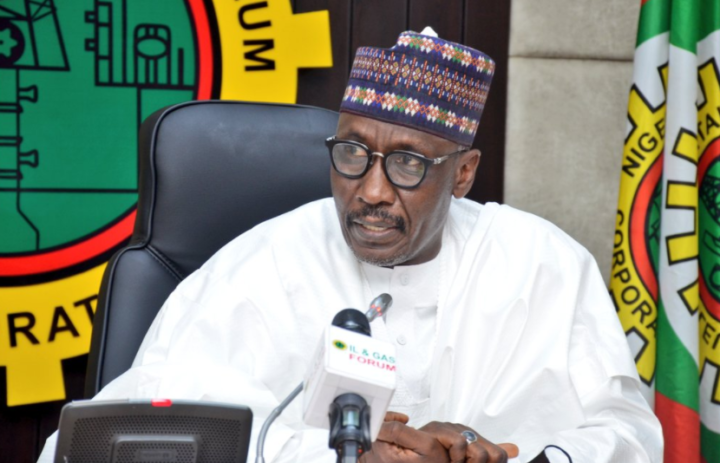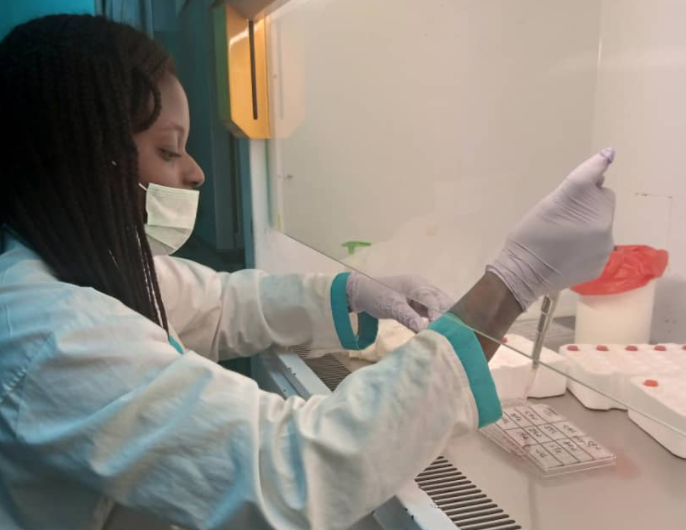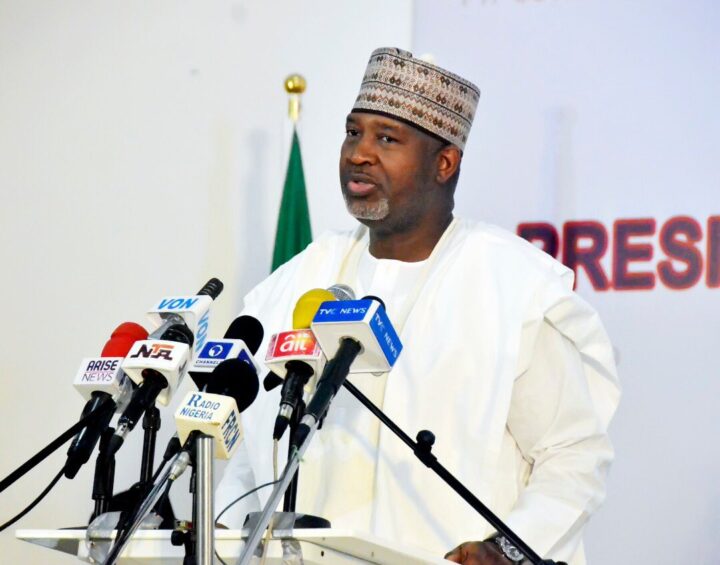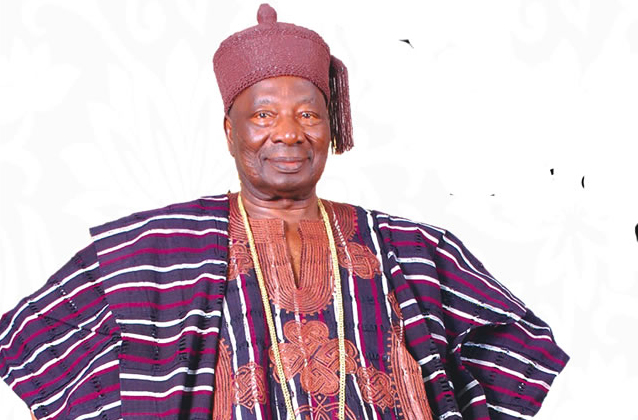On Friday, the federal government approved COVID-19 booster shots for Nigerians 18 years and above who have been fully vaccinated.
Faisal Shuaib, executive director of the National Primary Health Care Development Agency (NPHCDA), said the booster dose offers greater protection and advised Nigerians to visit the nearest health facility or mass vaccination site as from December 10.
What’s a booster shot and what does it do?
According to the World Health Organisation (WHO), booster shots are additional doses administered “to a vaccinated population that has completed a primary vaccination series (currently one or two doses of COVID-19 vaccine depending on the product)”.
Advertisement
Booster doses are given when, with time, the immunity and clinical protection has fallen below a rate deemed sufficient in that population.
The WHO went on to say that the current primary goal of immunisation in the COVID-19 pandemic remains to protect against hospitalisation, severe disease and death.
Safe to say, the purpose of the booster dose is to help people maintain their level of immunity for longer when it becomes low after taking the initial doses.
Advertisement
Booster shot approval in other countries
Israel was one of the first countries to approve COVID-19 vaccine boosters to its citizens. On July 30, its health ministry announced that it will offer a third dose to people over 60 to curb the spread of the highly transmissible Delta variant.
At the time, 5.39 million persons, representing 58 percent of the country’s population had been fully vaccinated, while 5.8 million persons, representing 62.4 percent had received at least one dose.
Also on September 14, the UK’s joint committee on vaccination and immunisation (JCVI) approved the COVID-19 booster shot for citizens over 50 who had their second COVID jab at least six months prior.
Advertisement
At the time, 44.18 million people representing 64.8 percent had been fully vaccinated, while 48.48 million people representing 71.1 percent had received at least one dose.
In the case of the United States, on September 22, the US Food and Drug Administration (FDA) authorised a booster dose of the Pfizer-BioNTech vaccine for people aged 65 and older and others at high risk of severe COVID-19 at least six months after completion of the two-dose regimen.
At that time, 183.99 million people representing 55.4 percent of persons in the country had been fully vaccinated, while 213.95 million people, representing 64.4 percent of the population had received at least one dose.
In the aforementioned countries, before the approval of the booster dose, more than half of citizens had been fully vaccinated.
Advertisement
But how many Nigerians have taken the vaccine so far?
On March 2, Nigeria received 3.9 million doses of the AstraZeneca vaccine courtesy of COVAX, and began vaccinating citizens on March 5.
Advertisement
Since the first batch was received, the country has also received the Moderna, Johnson & Johnson, and Pfizer vaccines.
According to the data provided by the NPHCDA, since the vaccination exercise started, 7,449,989 eligible Nigerians, representing 6.7 percent of the population, have received their first dose.
Advertisement
Meanwhile, 3,867,815 Nigerians, representing 3.5 percent of the population, have been fully vaccinated as of December 8.
Why are Nigerians unwilling to take the vaccine?
Advertisement
There are many factors that may be fuelling vaccine hesitancy among Nigerians, and chief among them are conspiracy theories and religious beliefs.
Godwin Ntadom, chief epidemiologist of Nigeria, told TheCable that most people getting the vaccines are those under obligation to do so, while the rest choose not to take it for various reasons.
“There was never a vaccine that did not come with its own storyline. They said the polio vaccine causes impotence. But nobody has come out to say it made them impotent. Conspiracy theories will always come up. Even some churches are still talking against the vaccine. It is not about 90 percent not being vaccinated, it’s about 90 percent not wanting to be vaccinated,” he said.
Another factor that may be causing Nigerians not to get vaccinated is the low fatality rate. Since the beginning of the pandemic, Nigeria has recorded less than 3000 deaths from COVID-19.
Why then did the federal government approve booster doses?
One point the WHO noted is that offering booster doses when many have not yet received even a first dose “undermines the principle of national and global equity”.
The world health body, however, said introducing booster doses should be guided by evidence on waning vaccine effectiveness or “due to a circulating variant of concern (VOC)”.
The federal government on Friday said it reviewed the country’s vaccination programme and resolved to introduce the booster dose, “following the detection of the Omicron variant of COVID-19 in Nigeria”.
Six cases of the “variant of concern” have been recorded in Nigeria.
Another impetus for approving the booster dose could be the issue of vaccines expiration.
On Wednesday, a news report stated that up to one million AstraZeneca COVID-19 vaccines expired in Nigeria in November.
Responding, Osagie Ehanire, minister of health, said some of the vaccines received from donors had “residual shelf lives of only few months” and that it left the government with a very short time — “some just weeks” — to use them, after deduction of time to transport, clear, distribute and deliver to users.
So will the booster dose serve any purpose?
If the booster vaccine was introduced due to the discovery of the Omicron variant, it means just 3.5 percent of the population are protected enough against it. The Omicron variant and other variants of concern may therefore still spread easily since the majority of the population lacks protection against it.
But according to Ntadom, although a vast majority of the population has not received the vaccine, the booster dose would at least help give those who have been fully vaccinated even more protection.
“Scientifically, it is better to get the booster dose because it will elicit your body to generate more antibodies. So there’s no harm in giving a booster dose,” he said.
Also, since being vaccinated is now a requirement for most international travel, being fully vaccinated and having taken a booster shot may be more desirable as some countries have set an expiration date for ‘fully vaccinated status’.
The way forward
Now, with the country still such a long way from herd immunity, and with millions of vaccines lost, coupled with the threat of emerging variants like Omicron, how does the federal government hope to convince Nigerians to get vaccinated?
Yanda Muhammad, NPHCDA spokesman, said aside from the current mass vaccination campaign, the agency is making use of strategic measures such as “community mobilisation, engaging community stakeholders such as traditional and religious leaders, community leaders to sensitize and creating high level awareness on the importance and benefits of COVID-19 vaccination”.
Add a comment





